Turkey Kurds: PKK chief Ocalan calls for ceasefire
- Published
The message was read out during New Year celebrations in Diyarbakir, as James Reynolds explains
The jailed leader of Kurdish rebels fighting Turkey, Abdullah Ocalan, has called for a truce after years of war.
Ocalan also urged the fighters of his PKK organisation to withdraw from Turkey, in a message read out to cheers during Kurdish New Year celebrations in the city of Diyarbakir.
Turkish Prime Minister Recep Tayyip Erdogan cautiously welcomed the call.
More than 40,000 people have died in the 30-year fight for an ethnic Kurdish homeland in Turkey's south-east.
Mr Erdogan said the move was "positive" but stressed the importance of the implementation of any ceasefire.
He said Turkish security forces would not undertake fresh operations against the rebels if Ocalan's call was implemented.
The military leader of the PKK, Murat Karayilan, said that he "very strongly" supported Ocalan's move.
"All of Turkey, Kurdistan and the world must know this: as the PKK movement, we are ready for war and for peace," he told the Kurdish Firat news agency.
Hundreds of thousands of people were present in Diyarbarkir to hear Ocalan's message, which follows months of talks between the PKK and Turkey.
Several previous ceasefire attempts between the two sides have failed.
But the BBC's James Reynolds in Istanbul says the announcement is potentially an important step towards ending the three-decade long conflict between Kurdish rebels and the Turkish state.
He points out that this time Ocalan and Mr Erdogan - the two key figures involved - are talking via intermediaries.
Turkey's aims to become a leading power in the Middle East - and eventually in Europe mean it must end its 30-year armed conflict with Kurdish rebels, our correspondent adds.
He says that Ocalan is still the final decision-maker among the Kurds, despite the 14 years he has spent in jail. He is serving a life sentence for treason.
The announcement was read out in Diyarbakir in Kurdish and in Turkish.
It was broadcast live on a Turkish television channel - itself unprecedented in a country where any display of PKK symbols had previously been banned.
"We have reached the point where weapons should be silent and ideas and politics should speak," Ocalan's message said, echoing the words of an earlier call by Mr Erdogan.
"A new phase in our struggle is beginning. Now a door is opening to a phase where we are moving from armed resistance to an era of democratic political struggle," he said.
"We have sacrificed decades for [the Kurds] and have paid a big price. None of these sacrifices and struggles were in vain. Kurds regained their self-awareness, essence and identity.
"Now it is time for our armed units to move across the border [to northern Iraq]. This is not an end but a new beginning. This is not abandoning the struggle, but a start to a different struggle."
Our correspondent says it is not immediately clear when this withdrawal will take place - or whether the PKK will ultimately choose to disarm.
There was an enormous cheer from the crowd when Ocalan's announcement was made, the BBC's Guney Yildiz reports from Diyarbarkir.
But as the announcement was finished, one man in the audience, Ismet, cautioned that there was nothing new in the message. "He has been making similar calls for peace since the 1990s," he told our correspondent.
However, the co-chair of the pro-Kurdish Peace and Democracy Party (BDP), Gultan Kisanak was more hopeful, telling the BBC that "this announcement is more than a call about the technical matter of a ceasefire".
"It is the declaration of a new strategy," she said.
Ocalan move?
Ocalan had told Kurdish politicians who visited him earlier this week at his prison on the island of Imrali that his declaration would be "historic".
In February the PKK (Kurdistan Workers' Party) leader, who has been in Turkish custody since his capture in Kenya in 1999, called for prisoners to be released by both sides.
The PKK freed eight Turkish soldiers and officials it had held captive in northern Iraq for up to two years.
The PKK launched its armed campaign in 1984 and is regarded by Turkey, the US and EU as a terrorist organisation. Last year saw some of the heaviest fighting in decades.
The organisation rolled back on its demands for an independent Kurdish state in the 1990s, calling instead for more autonomy.
Reports say the PKK wish list now includes greater constitutional and linguistic rights for Kurds, as well as an easing of pressure on Kurdish activists.
The government has also not dismissed speculation that Ocalan could be moved to house arrest.
On the eve of the truce call, Mr Erdogan condemned a number of blasts in the capital blamed on a left-wing group which opposes the talks with the PKK. He promised to push ahead with "extremely critical and sensitive" peace efforts, which have been going on since October.
Abdullah Demirbas, a district mayor in Diyarbakir, told Reuters news agency there would be more attempts to sabotage talks, but this was a last chance for peace.
"The PKK, Ocalan and the government must be brave... There is massive social support for this process."
- Published21 March 2013
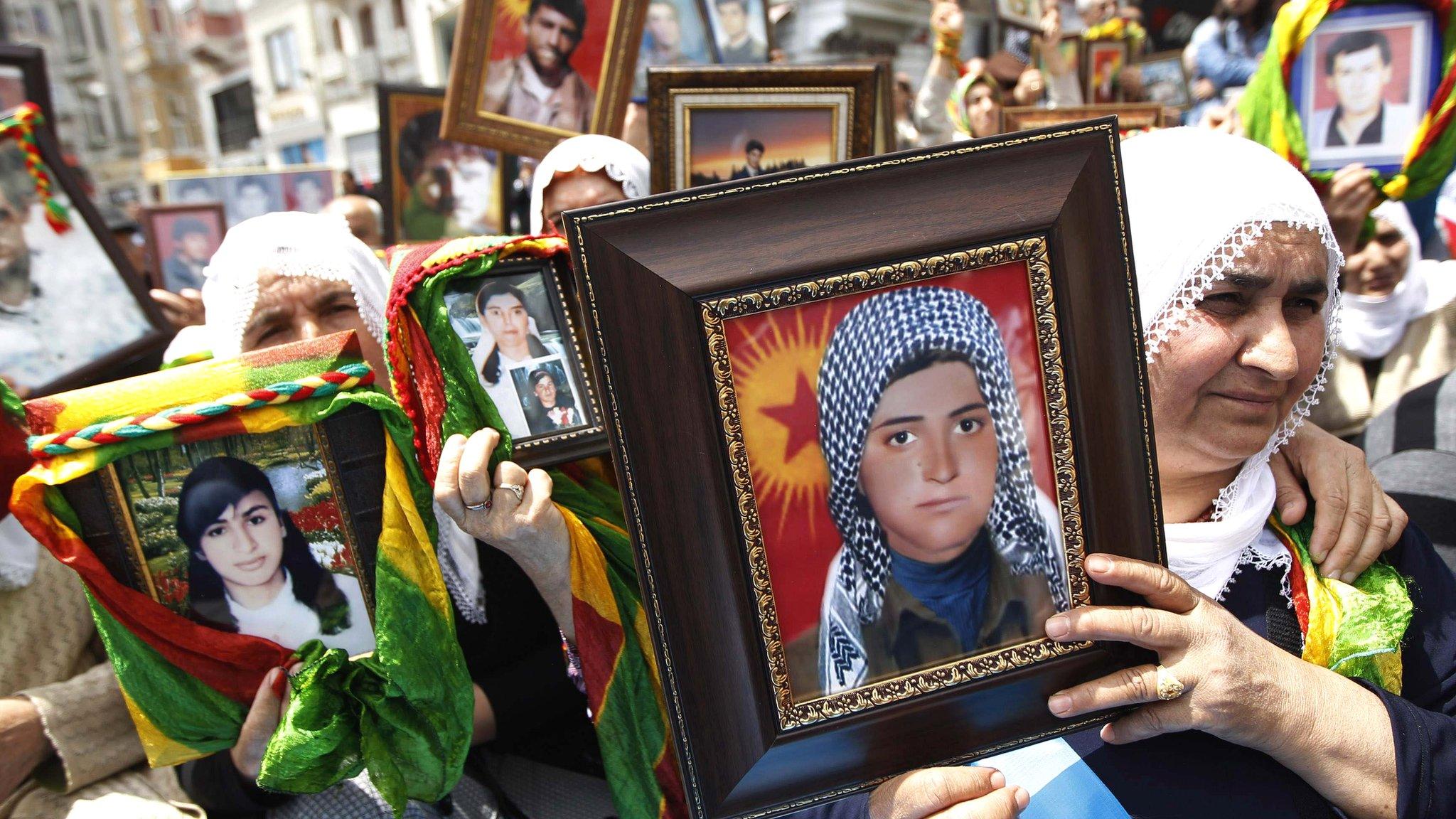
- Published22 March 2013
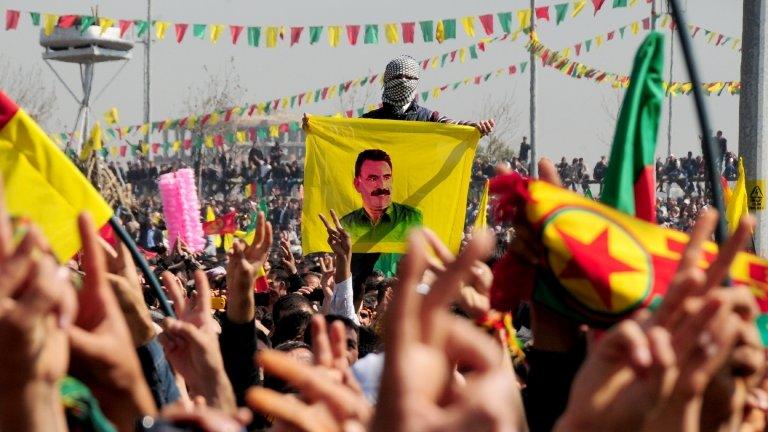
- Published21 March 2013
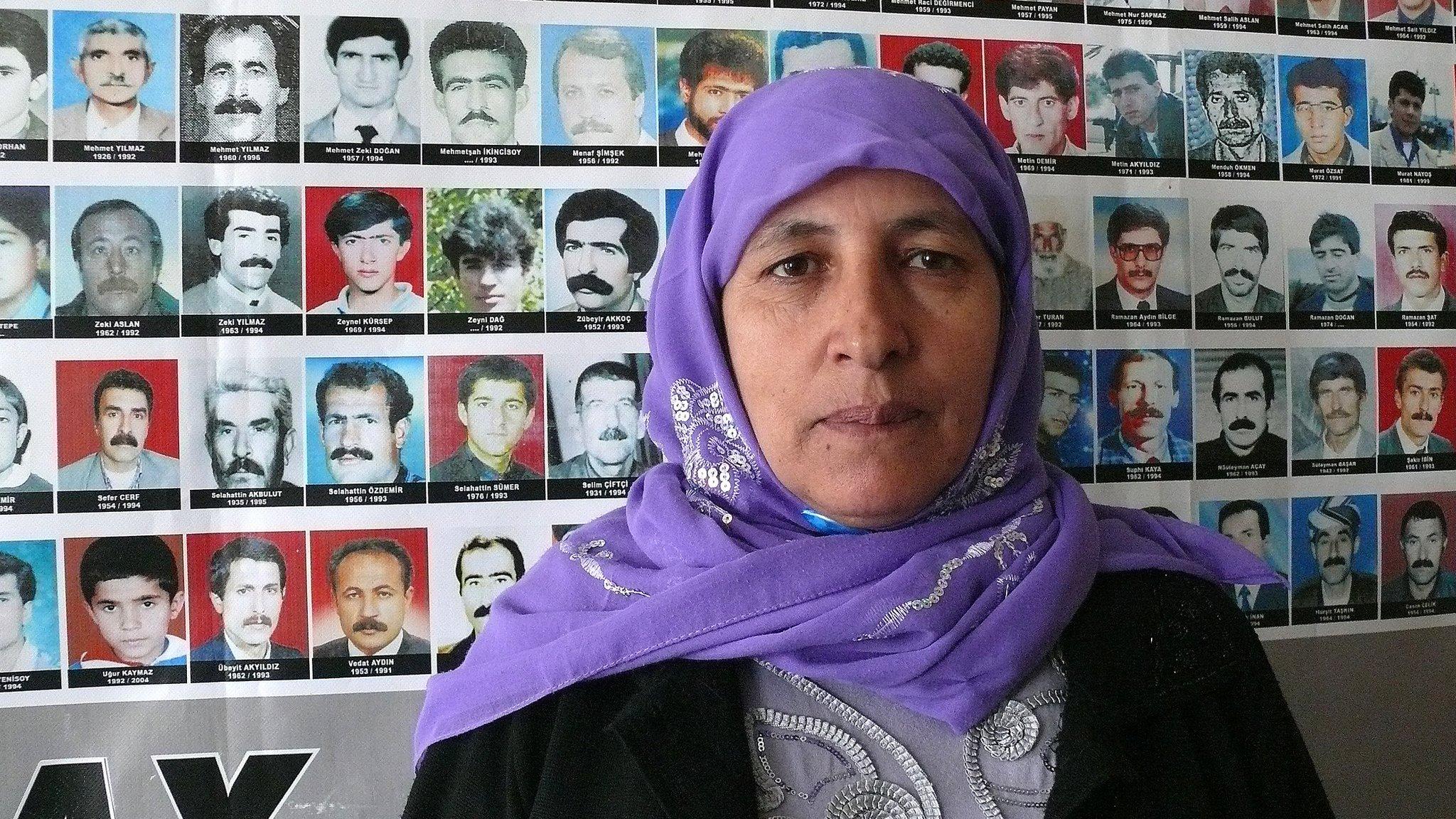
- Published4 February 2013
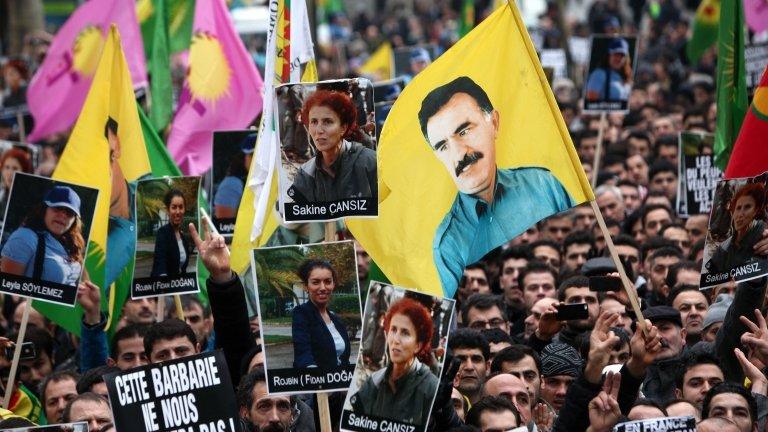
- Published4 November 2016
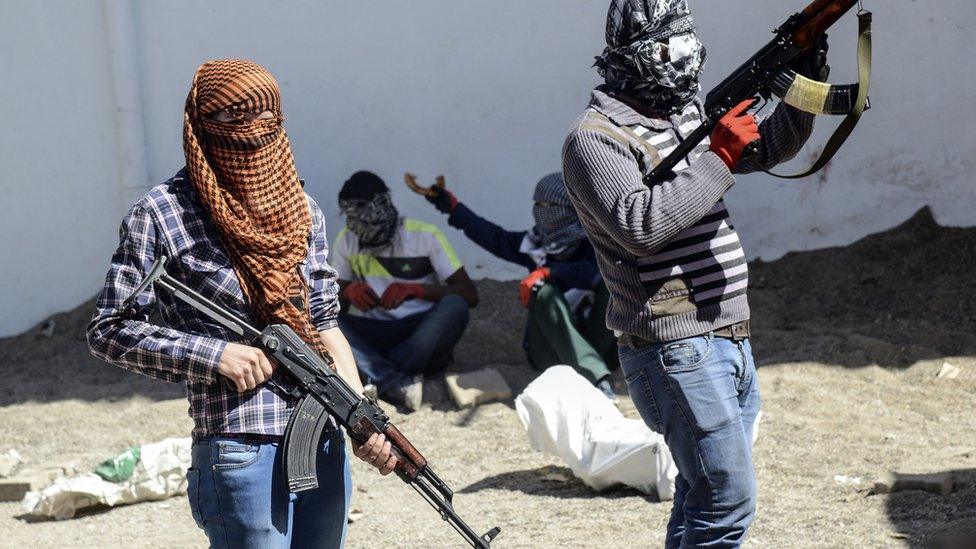
- Published13 March 2013
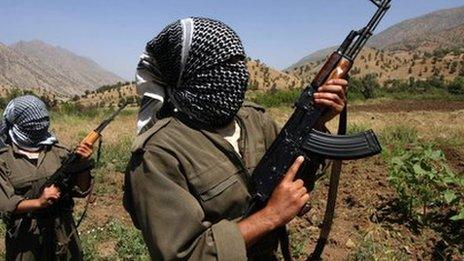
- Published10 January 2013
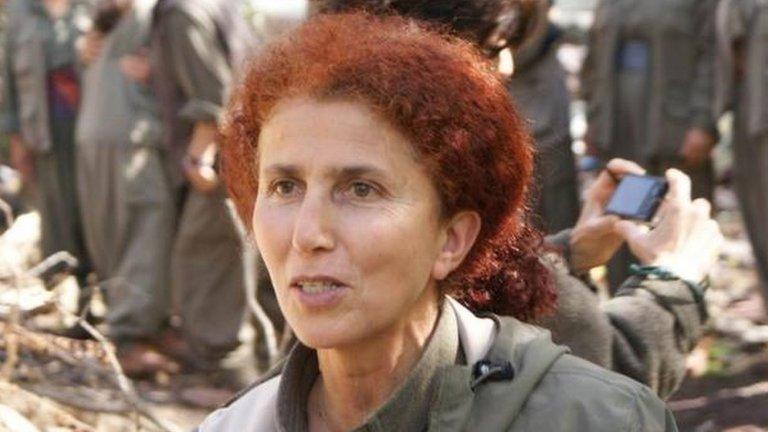
- Published18 November 2012
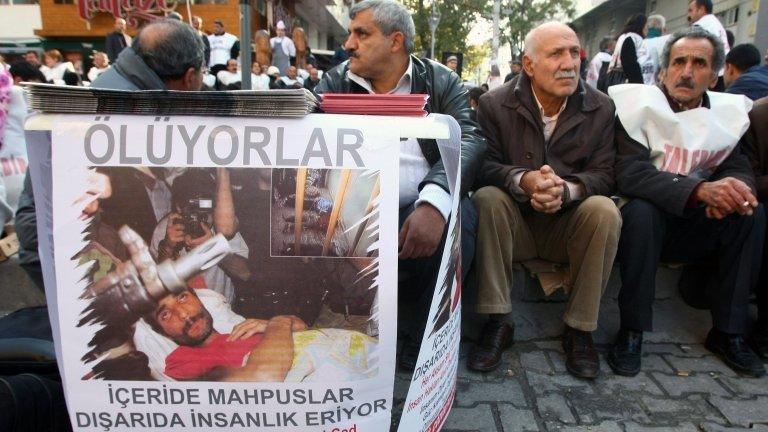
- Published11 October 2012
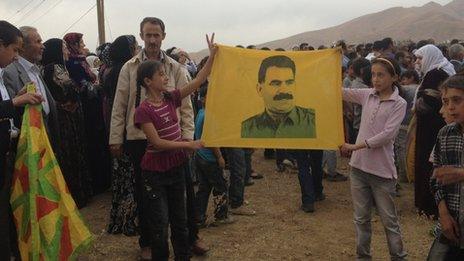
- Published22 August 2023
